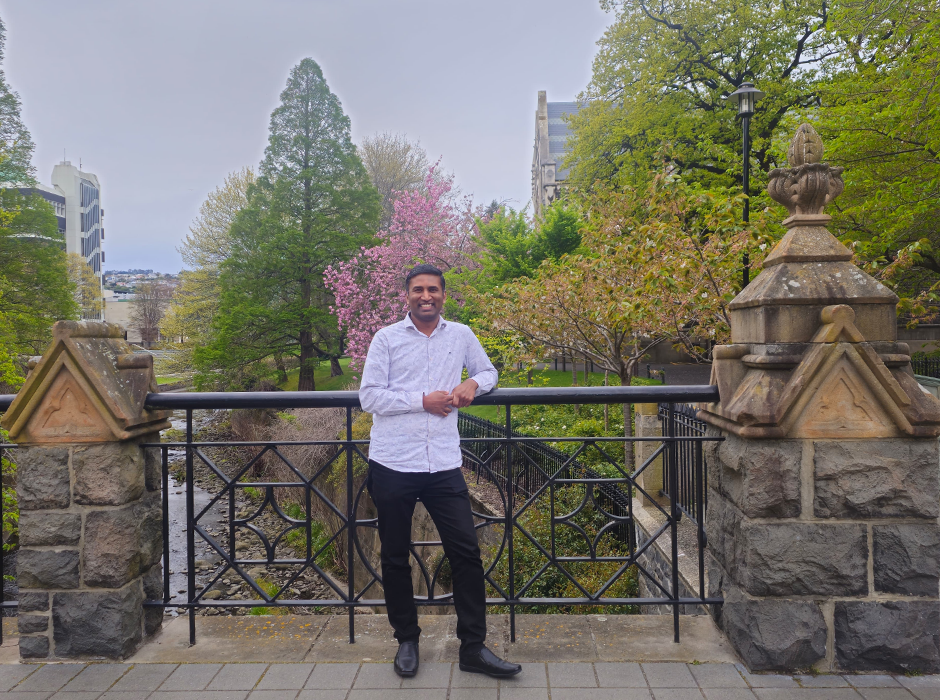
Senior Lecturer at the Centre for Health, Activity and Rehabilitation, Dr Prasath Jayakaran, shares how his experience working on amputee patients at the Christian Medical College in Vellore inspired his current work with Parkinsons patients.
Helping as many as 50 patients a day with their functional balance and sensory-motor re-organisation was quite the balancing act for Dr Prasath Jayakaran.
Now a Senior Lecturer at the School of Physiotherapy, Prasath says that work at the Christian Medical College in Vellore in India laid the foundation for his current clinical and research work with Parkinson’s clients in Dunedin.
Prasath completed his degree in physiotherapy at the Tamil Nadu Dr MGR Medical University, in Chennai, and a Masters in Sports Physiotherapy at Hamdard University in New Delhi, before taking a job at the Christian Medical College – a not-for-profit educational, research, and healthcare institute.
The College has more than 2,250 patient beds and carries out an average of 185 operations each day.
Prasath spent his time there teaching and undertaking clinical practice work from Monday 7:30am until Saturday at 1pm and often worked over hours as the leader of the outpatient rehabilitation team – a role that saw him working mainly with patients with limb amputations.
It was demanding but rewarding as both Prasath and the students he taught had a high quantity of hands-on work helping patients with considerable needs.
And no two cases were the same; on one day Prasath saw two patients of similar ages with similar amputations, but their responses to treatment were very different.
“One patient’s amputation was due to diabetes and the other a trauma but, surprisingly, the trauma patient recovered at a rate substantially faster than the diabetes patient and there was nothing in the literature at the time explaining why this could be,” Prasath says.
“This spurred my interest into researching functional balance and sensory-motor re-organisation and how these treatments avenues can be bettered to improve the lives of patients with motor issues.”
Prasath began exploring universities across the world, concentrating on who could support research in this area. He came across the now-retired Dr Gill Johnson at the University of Otago
She was working on the rehabilitation of patients with lower limb amputations and encouraged Prasath to join her in Dunedin to undertake his PhD.
He completed his doctoral studies in 2012 on postural balance in lower limb amputations and has since completed two postdoctoral fellowships, one at Brunel University in London, and another at Otago.
In March 2017, he accepted an academic position at the School of Physiotherapy to develop and strengthen balance research, which has extended into investigating how this might apply to Parkinson’s disease.
“Applying functional balance and sensory-motor re-organisation research to Parkinson’s disease is new but we’ve been able to apply our learnings from amputations research and put this to the test in Parkinson’s.”
“Research like this informs how we can improve people’s quality of life and so it’s very motivating to see what we can uncover for the betterment of patients.”
Kōrero by the Division of Health Sciences Communications Adviser, Kelsey Swart